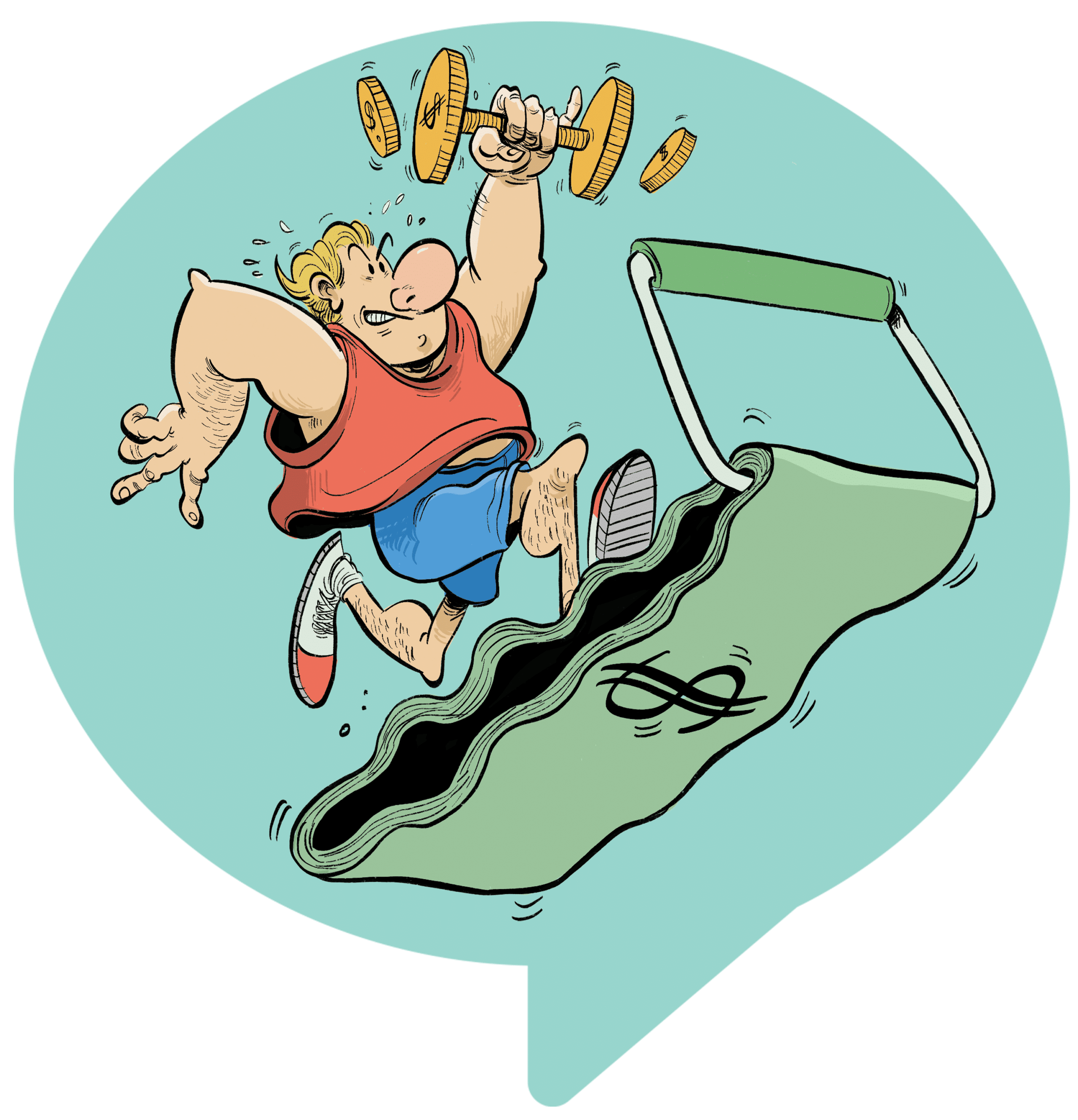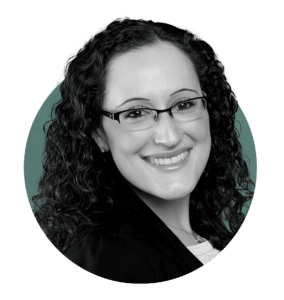
Ask MoneyTalk: How can I save and invest while still managing debt?
Your financial responsibilities may be pulled into different directions when you try to pay down debt and save at the same time. Here's some strategies to think about.

MINDI BANACH
VICE PRESIDENT, TAX AND ESTATE PLANNER, WEALTH ADVISORY SERVICES, TD WEALTH
In today’s challenging economic times, where prices are rising, interest rates have climbed and job security feels uncertain, many of us are feeling the financial squeeze. Families are faced with tough decisions around debt that deeply impact their lifestyles, often leading to an overwhelming sense of financial pressure.
The challenges of managing debt are real, yet there are effective strategies available to tackle debt while simultaneously exploring ways to save and invest. This article doesn’t just focus on resolving debt: It also emphasizes the importance of financial literacy as a way of navigating the financial system. It offers practical ideas and approaches to efficiently manage finances during tough economic times. By prioritizing saving and investing, these strategies can empower you to make well-informed financial choices in an uncertain economic environment helping you regain confidence in your finances.
Track your cash flow
Understanding your cash flow is crucial, even if the idea of making a budget seems overwhelming. But here’s the thing: A budget is like a roadmap showing where your money comes from and where it goes. It helps you identify essential and optional spending. While you might not have wiggle room over fixed expenses like rent or mortgage payments, you can manage flexible areas, such as dining out, trips to Florida and fun splurges. It may sting but cutting back on flexible expenses is one place where you can concentrate your efforts. One way to track spending is through a cash flow calculator.
As you compile your financial data, consider adopting a zero-based budgeting approach, which involves meticulously accounting for every dollar in and out until you reach zero. This strategy can provide a clear overview of where your money is allocated and help identify areas for potential improvement. For instance, although an occasional $20 expense might appear inconsequential, saving $20 on five separate occasions per month can accumulate into $100 for debt repayment. As you investigate your finances, keep an eye out for hidden fees and scrutinize each transaction and billing statement for exactly what is being charged.
Organize your debts
Let’s delve into some key financial literacy insights. Individuals often find themselves managing various forms of debt, credit cards, mortgages, student loans, and other loans for various purposes. Each type of debt carries a different interest rate structure. Retail credit cards usually bear the highest interest rates, followed by regular credit cards, while loans tied to home equity may offer comparatively lower rates. Now, problems can begin when we don’t pay off our cards right away and interest begins to accumulate — it’s like a tiny leak in a water pipe causing substantial damage if neglected. For instance, not paying a credit card bill with a 20% interest rate for a $200 pair of shoes means, in a sense, the price of those shoes begins rising for every month they are not paid for, all while the shoes wear out.
Best to be proactive: This means regularly paying off your credit card balances and focusing on the debt with the highest interest rate, gradually working your way through the others. Your bank might also be able to help by combining all of your debts into one single loan with a comparatively lower interest rate.
Change shopping habits
Going shopping can feel good, even if we’re spending more than we planned. But remember, every time you pay for something, it’s a choice and you usually have an option of not buying an item or buying a less expensive alternative. For example, could you manage with just one streaming service instead of five? Spending less may mean giving up a bit of convenience, such as choosing to take the bus vs. using a ride-hailing service, or giving up some of your time, such as making homemade gifts vs. next-day shipping for a store-bought gift. But each choice could potentially free up money to pay down debts.
I get it, these decisions can be tough. But when it’s about achieving economic stability or facing another bill you can’t pay, it doesn’t have to feel like a sacrifice.
When changing your spending habits (as well as addressing debt problems), remember to incorporate flexibility into your plan. Much like starting a new exercise routine, it takes time to fully commit, so don’t be too hard on yourself if you don’t get the hang of it right away. The sooner you adjust, the sooner you may see a change in your spending habits and a decrease in your debts.
How can you continue saving money and investing regularly?
Creating a budget goes beyond just tracking cash flow and paying off debts; A budget is a powerful tool for fostering savings and investments. Even when finances feel tight, continuing to save and invest plays a crucial role in securing your family and your future. This is particularly true if you’re using accounts specifically designed to help your money grow. Here are some types of accounts worth considering:
Registered Retirement Savings Plan (RRSP): RRSPs offer a significant tax advantage as eligible contributions made to these accounts can be deducted from your yearly tax return, potentially reducing the total amount of taxes you have to pay. Additionally, income earned within your RRSP remains tax-deferred until you withdraw the funds. While immediate financial concerns often take precedence, planning for future obligations, especially healthcare expenses in retirement, is crucial. RRSP funds can serve as a valuable resource to cover these future costs, potentially providing increased financial independence and the ability to support family members.
Registered Educational Savings Plan (RESP): As tuition fees (and housing costs) continue to rise, this plan helps save for your kids’ future education expenses, like university, college or trade school. The money that you invest in an RESP grows tax-deferred, and the federal government helps contribute to your savings along the way in the form of education grants.
First Home Savings Account (FHSA): If you’re considering buying your first home or helping a family member purchase theirs, exploring the FHSA might be beneficial. This specialized savings plan is crafted for prospective first-time homeowners in Canada. Like an RRSP, eligible contributions to an FHSA may be tax-deductible. Additionally, like the Tax-Free Savings Account, it allows for qualified tax-free withdrawals. While you can’t directly open an FHSA account for a family member, you can gift money to them to open their own FHSA account.
For more details on registered plans and investing products click here.
Final thoughts
By putting the strategies discussed in this article into practice, you can enhance your ability to navigate tough economic times. Managing debt, maintaining savings and fostering investments become key elements of a well-rounded financial strategy. These efforts contribute to your financial resilience, and may help ensure a stable and secure future for you and your loved ones in the face of economic uncertainties.
ILLUSTRATION DANESH MOHIUDDIN
Book an appointment with a TD Personal Banker
DISCLAIMER: The information contained herein is for information purposes only. The information has been drawn from sources believed to be reliable. The information does not provide financial, legal, tax or investment advice. Particular investment, tax, or trading strategies should be evaluated relative to each individual’s objectives and risk tolerance. Commissions, trailing commissions, management fees and expenses all may be associated with mutual fund investments. Please read the fund facts and prospectus, which contain detailed investment information, before investing. Mutual funds are not covered by the Canada Deposit Insurance Corporation or by any other government deposit insurer and are not guaranteed or insured. Their values change frequently. There can be no assurances that a money market fund will be able to maintain its net asset value per unit at a constant amount or that the full amount of your investment will be returned to you. Past performance may not be repeated. Mutual fund strategies and current holdings are subject to change.
TD Mutual Funds and the TD Managed Assets Program portfolios are managed by TD Asset Management Inc., a wholly-owned subsidiary of The Toronto-Dominion Bank and are available through authorized dealers. Mutual Funds Representatives with TD Investment Services Inc. distribute mutual funds at TD Canada Trust. All trademarks are the property of their respective owners.
TD Wealth Private Wealth Management represents the products and services available through TD Wealth Private Investment Advice (a division of TD Waterhouse Canada Inc.), TD Wealth Private Investment Counsel (offered by TD Waterhouse Private Investment Counsel Inc.), TD Wealth Private Banking (offered by The Toronto-Dominion Bank) and TD Wealth Private Trust (offered by The Canada Trust Company).
® The TD logo and other trademarks are the property of The Toronto-Dominion Bank or its subsidiaries.